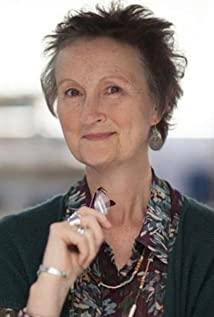The TV series "Les Miserables" is divided into six episodes, each of which is an hour. It is based on the post-war period of Napoleon Waterloo and tells the story of the hero Jean Valjean's self-redemption. Hugo's novel of the same name in this play can be said to be a macro-edited masterpiece that integrates social, political, cultural and other elements of a specific period in France. The topics of human nature, belief, love, ideals, revolution and other aspects involved in this play are well described in many details, to name a few.
The portrayal of the characters with the protagonist Jean Valjean is still in place. The choice of good and evil in human nature, the redemption of self, the love of daughter, and the pursuit of faith are all vividly portrayed. The shots of Fantine's character and emotional changes are also very infectious, and Lili Collins's appearance is also amazing. But in the second half of the play, I feel that the portrayal of the three characters, Cosette, Marius, and Eppenne, is still a bit lacking. The complex and distinctive character characteristics of the characters are not well portrayed, which makes the characters a little thin. As a result, the development of the second half of the storyline was not well promoted. This may also be related to the fact that I was not very focused when watching the second half. The screenwriter still gave everyone a complete and thoughtful ending. Cosette and Marius finally got married, and Jean Valjean finally got the redemption of kindness and love. The last two little beggars were for the society and revolution at that time. The implication is also in line with the theme of Les Miserables.
The first theme of the play, good and evil, was debated in many conversations between Jean Valjean and Javert. I have always believed that there is no simple good or bad, good or bad in this world. The world is not so black and white, it is more in a gray area. Everyone is born with a blank sheet of paper, and then painted with various paints on it. A lot of times I like to talk about things in terms of facts, rather than people in terms of facts. It is easier to distinguish between good and bad things, but people cannot generalize. So many times things can be distinguished one by one, but people can only discuss good and bad as a whole, and it is common for good people to do bad things and bad people to do good things.
Another is the topic of choice and redemption, which is something I often think about. In the play, Jean Valjean was influenced by Bishop Miliere and chose to do evil instead of good, so what if Jean Valjean did not meet Bishop Miliere, who was great and loved? What if Bishop Milliere's benevolence and kindness were not broad enough? This involves the issue of going from good to evil, redemption and being saved. In fact, in our ordinary life, there are very few such great good and great evils, and more of them are small good and small evil. So a sentence in the Analects of Confucius is very instructive, "Do not do evil for small things, and do not do good for small things." Therefore, when we do evil, we should think of those who suffer from evil, and when we do good, we should think of those who suffer from good. This may also be a form of empathy. There is also whether we are so lucky to meet someone who can save us in our lives, even if such a savior appears, we have to make our own choices. More often, you have to think about how to save yourself.
Regarding the issue of faith, Uncle Ran had firm beliefs that supported him to survive prison, discrimination, and incomprehension; Javert also had his beliefs, even if his beliefs collapsed in the end; democratic revolutionaries also had beliefs before they could devote themselves to the revolution. I can't talk about this thing, because I don't have a belief, or I don't know what my belief is?
Generally speaking, the details still have to be tasted by yourself. Due to the limitations of personal thinking, many times you can only see some things about self-cultivation and being a human being, and it is difficult to have a deep understanding of the big propositions about the nation, society and human beings.
View more about Les Misérables reviews











